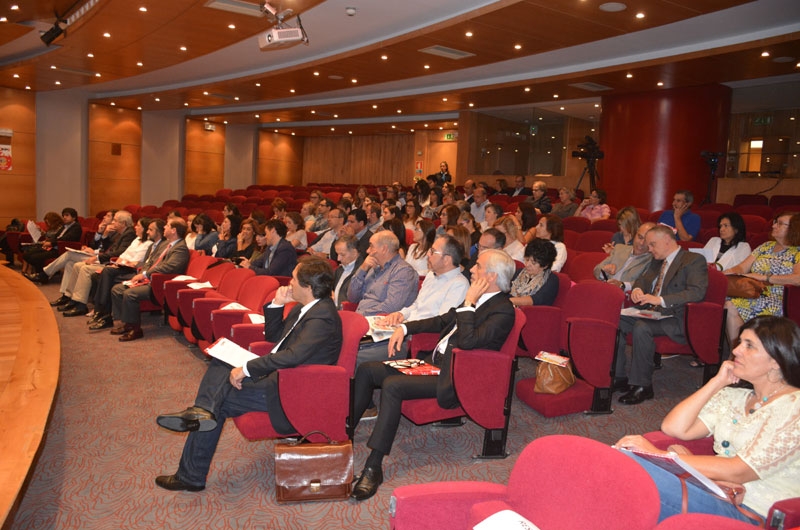Portugal: FNE annual Forum on Education and Training and Integration
Published:
On 8 October 2016, the annual FNE Forum took place in Lisbon in conjunction with the celebrations for World Teacher’s day 2016. FNE affiliates gathered under the call "Innovation in education, towards quality education”, to discuss and to rethink the traditional school organization in the context of a changing society and future challenges.
During the opening session João Dias da Silva, Secretary General of FNE, stressed that the World Teachers' Day 2016 also marks the 50th anniversary of the joint ILO and UNESCO Recommendation concerning the Status of Teachers adopted in 1966 and the 30th anniversary of the Portuguese Education Act, an ambitious document which should now be transposed into a law on education and training. According to FNE’s Secretary General economic and educational issues have been regarded separately in the past, but they should be increasingly coordinated. Therefore, the school organization has to be reviewed. As he pointed out, "it is not worth imagining new skills, new competences or contents, if the school is still organized in a nineteenth century’s way". Mr. Dias da 'Silva stressed the crucial role of non-teaching staff in schools and education. Finally, he recalled that on 7 October many countries celebrated the World Day for Decent Work 2016, which has not experienced sufficient recognition according to the Secretary General. In the message sent to the Forum, the President of the Republic of Portugal, Mr Marcelo Rebelo de Sousa, urged political and social leaders address the real challenges and problems that teachers, non-teaching staff, students and parents are facing.
In a message to the Forum, Martin Rømer, ETUCE European Director, summarized the priorities and challenges for education in Europe and internationally. In this line, he defended the use of critical thinking and media literacy in the teaching-learning process as a way to combat all forms of radicalisation and fundamentalism. He further advocated for continuous professional develop a more effective integration of Information and Communication Technologies (ICT) in education as well as salaries and decent pensions in the education sector.
Gonçalo Lobo Xavier, Vice-President European Economic and Social Committee (EESC), spoke about today's challenges related to innovation in education. Alexandre Castro Caldas, Director of the Institute of Science Health of the Portuguese Catholic University, focused his presentation on the parents and teachers’ training requirements for students and for the adults of tomorrow. Subsequently, Diogo Simões Pereira, Secretary General of ‘Entrepreneurs for Social inclusion’, and José Verdasca, University of Évora, contributed to the panel with a presentation on "Will we continue to have this school?", which addressed the efforts and progress made by the various lead exponents of education in Portugal. José Pedroso, General Director of Education, Paulo Dias, Rector of the Open University – the only public distance education university in Portugal, and Pedro Duarte, Microsoft, contributed to the afternoon panel "Do new technological features enable a better teaching and learning process? How can we use them appropriately? Do we have the right conditions to use them well? ",
In the closing section, FNE successfully signed a protocol of cooperation with the Open University and UnYLeYa (a provider of distance learning over the internet), in order to provide members of its unions training activities in e-learning and b-learning, for both teachers and non-teachers. This latter step and the fruitful discussions held during the day marked the reaching of FNE FORUM's goals 2016.